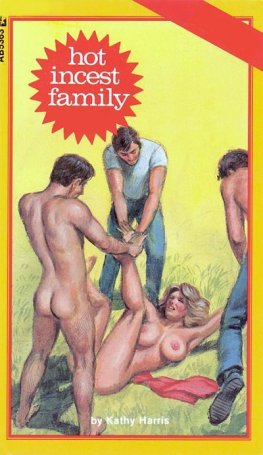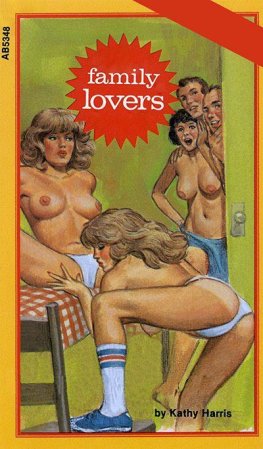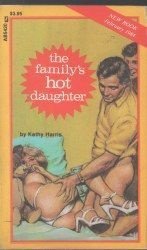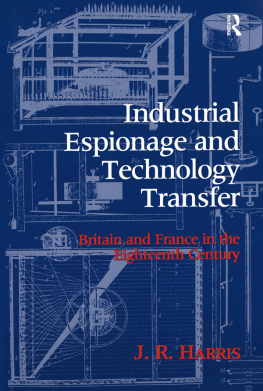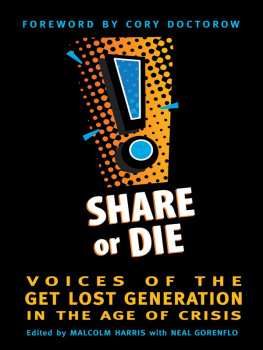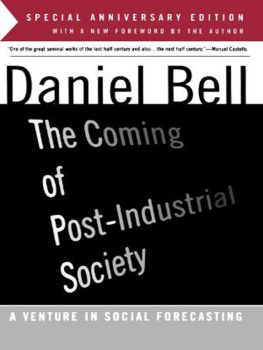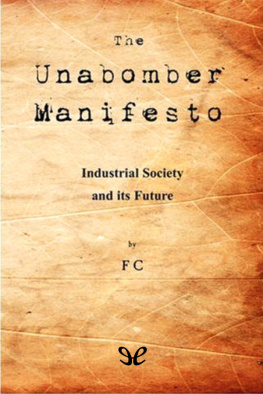STUDIES IN SOCIOLOGY
Volume 5
THE FAMILY AND INDUSTRIAL SOCIETY
First published in 1983 by George Allen & Unwin (Publishers) Ltd
This edition first published in 2022
by Routledge
2 Park Square, Milton Park, Abingdon, Oxon OX14 4RN
and by Routledge
605 Third Avenue, New York, NY 10158
Routledge is an imprint of the Taylor & Francis Group, an informa business
1983 C. C. Harris
All rights reserved. No part of this book may be reprinted or reproduced or utilised in any form or by any electronic, mechanical, or other means, now known or hereafter invented, including photocopying and recording, or in any information storage or retrieval system, without permission in writing from the publishers.
Trademark notice: Product or corporate names may be trademarks or registered trademarks, and are used only for identification and explanation without intent to infringe.
British Library Cataloguing in Publication Data
A catalogue record for this book is available from the British Library
ISBN: 978-1-03-207714-7 (Set)
ISBN: 978-1-00-321960-6 (Set) (ebk)
ISBN: 978-1-03-210478-2 (Volume 5) (hbk)
ISBN: 978-1-03-210503-1 (Volume 5) (pbk)
ISBN: 978-1-00-321558-5 (Volume 5) (ebk)
DOI: 10.4324/9781003215585
Publishers Note
The publisher has gone to great lengths to ensure the quality of this reprint but points out that some imperfections in the original copies may be apparent.
Disclaimer
The publisher has made every effort to trace copyright holders and would welcome correspondence from those they have been unable to trace.
C. C. Harris, 1983
This book is copyright under the Berne Convention. No reproduction without permission. All rights reserved.
George Allen & Unwin (Publishers) Ltd,
40 Museum Street, London WC1A 1LU, UK
George Allen & Unwin (Publishers) Ltd,
Park Lane, Hemel Hempstead, Herts HP2 4TE, UK
Allen & Unwin, Inc.,
9 Winchester Terrace, Winchester, Mass. 01890, USA
George Allen & Unwin Australia Pty Ltd,
8 Napier Street, North Sydney, NSW 2060, Australia
First published in 1983
British Library Cataloguing in Publication Data
Harris, C. C.
The family and industrial society. (Studies in sociology; 13)
1. Family History 2. Family Social aspects
I. Title II. Series
306.8509 HQ503
ISBN 0-04-301155-1
ISBN 0-04-301156-X Pbk
Library of Congress Cataloging in Publication Data
Harris, C. C. (Christopher Charles)
The family and industrial society.
(Studies in sociology; no. 13)
Bibliography: p.
Includes index.
1. Family Great Britain. 2. Industry Social aspects Great Britain.
I. Title II. Series:
Studies in sociology (Allen & Unwin); no. 13.
HQ614.H19 1983 306.850941 83-3833
ISBN 0-04-301155-1
ISBN 0-04-301156-X (pbk.)
Set in 10 on 11 point Times by Graphicraft Typesetters Limited
and printed in Great Britain
by Biddies Ltd, Guildford, Surrey
Ive just come back from visiting a relative in hospital.
What sort of relative?
Well, Im not quite sure; shes connected with my parents, I know that. I think shes some sort of cousin. She used to come and visit Mum when we were kids. Auntie Florrie, we used to call her. Of course, she wasnt our auntie, that is not really. But shes definitely related not close of course but related.
Why did you go and see her?
Well, her being in hospital and that, you know, she could probably do with cheering up.
But you dont visit everyone who is in hospital? Why did you visit her?
Because she isnt just anyone, I suppose. I mean, when I was over at Mums on Tuesday no wait a minute, it was Wednesday, because that was the day the laundry came just as I was going out Mum said, You remember Auntie Florrie shes in the General. Well, I never did, I said. Whats wrong with her? Its for the veins in her legs, she said. So seeing as how I had to pass so close, I more or less had to pop in and see her, didnt I? I mean, she is related, isnt she?
We are all familiar with conversations of this type. They constitute expressions not only of the feelings or sentiments of the individual concerned, but also of beliefs as to what is socially demanded of people who stand in that relation to one another, signified by the term related. The last phrase she is related, isnt she? is clearly not, in this context, a plea for confirmation that the speaker is in fact related to Auntie Florrie, but an appeal to a rule concerning the behaviour of persons categorised as related to one another, which the speaker expects her audience to share. She expects the other person to say: Ah, now I see why you went to see this person. She is a relative (that is, is a member of a socially recognised category of persons), and we all know that people ought to visit their relatives, especially when in trouble (that is, she therefore has to be treated in the way laid down by some rule specifying the behaviour of members of that category towards one another).
If we examine this conversation further, it is possible to make certain inferences about the system of rules which govern the behaviour of persons belonging to the same group as the speaker. In the first place, she is not at all clear how Florrie is related to her. Hence, Florries exact relationship to her is of small importance compared with the fact of her relationship. Secondly, she does make the distinction between close relatives and others (placing Florrie among the others), even though she cannot be sure whether that relationship is through the mother or the father. Hence, we might guess that relationships through each parent are probably of equal importance. We might infer also that it is how far away a person is that matters rather than who theyre related through. That is, there may be more important differences between the way one is expected to behave to ones brother as opposed to ones fathers brother or ones fathers brothers son than between, say, your mothers brother and your fathers brother. Or to put it more technically, we might say that the degree of genealogical distance is more important than differences in filiation (being the child of).
In the third place, we may note that the speaker uses the term aunt of someone who is not her aunt according to the normal definition. It seems likely that she is expected to behave towards Florrie in the same way as to an aunt, which is why she is of course called aunt. Her feeling that she has niecelike duties towards her (visiting her in hospital) tend to confirm this view. But both her verbal statement (she wasnt our Auntie) and the fact that it is only because she is passing so close that makes her feel she has to visit, suggests that though using the title Aunt for both real and fictive aunts, she is nevertheless very well aware of the difference.
Finally, it is clear from her account that she does not feel any particular affection for the person concerned, she has not been in frequent contact (she didnt know that she was ill until her mother told her her mother said you remember ) but nevertheless feels some sort of obligation to pop in: I



